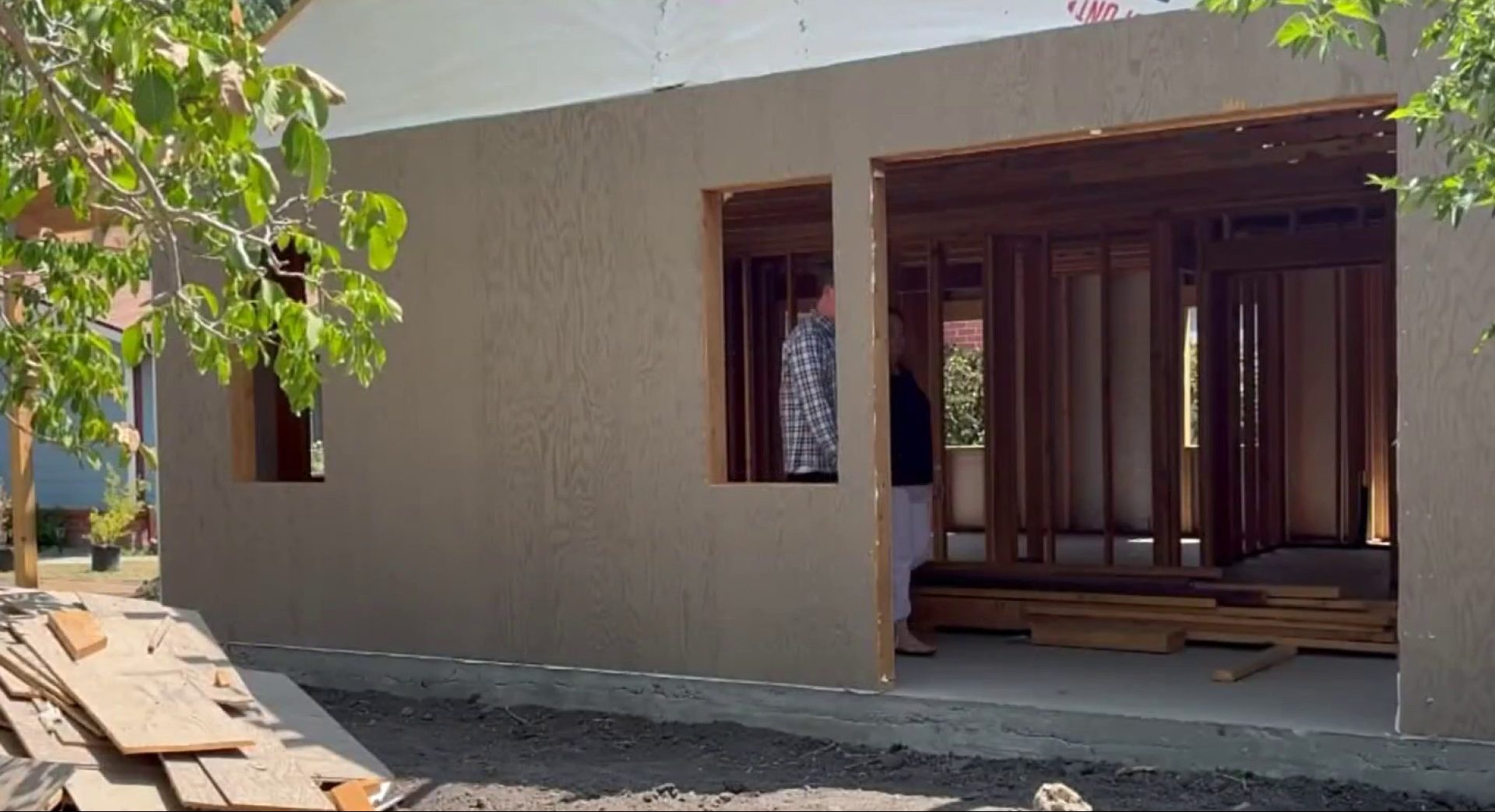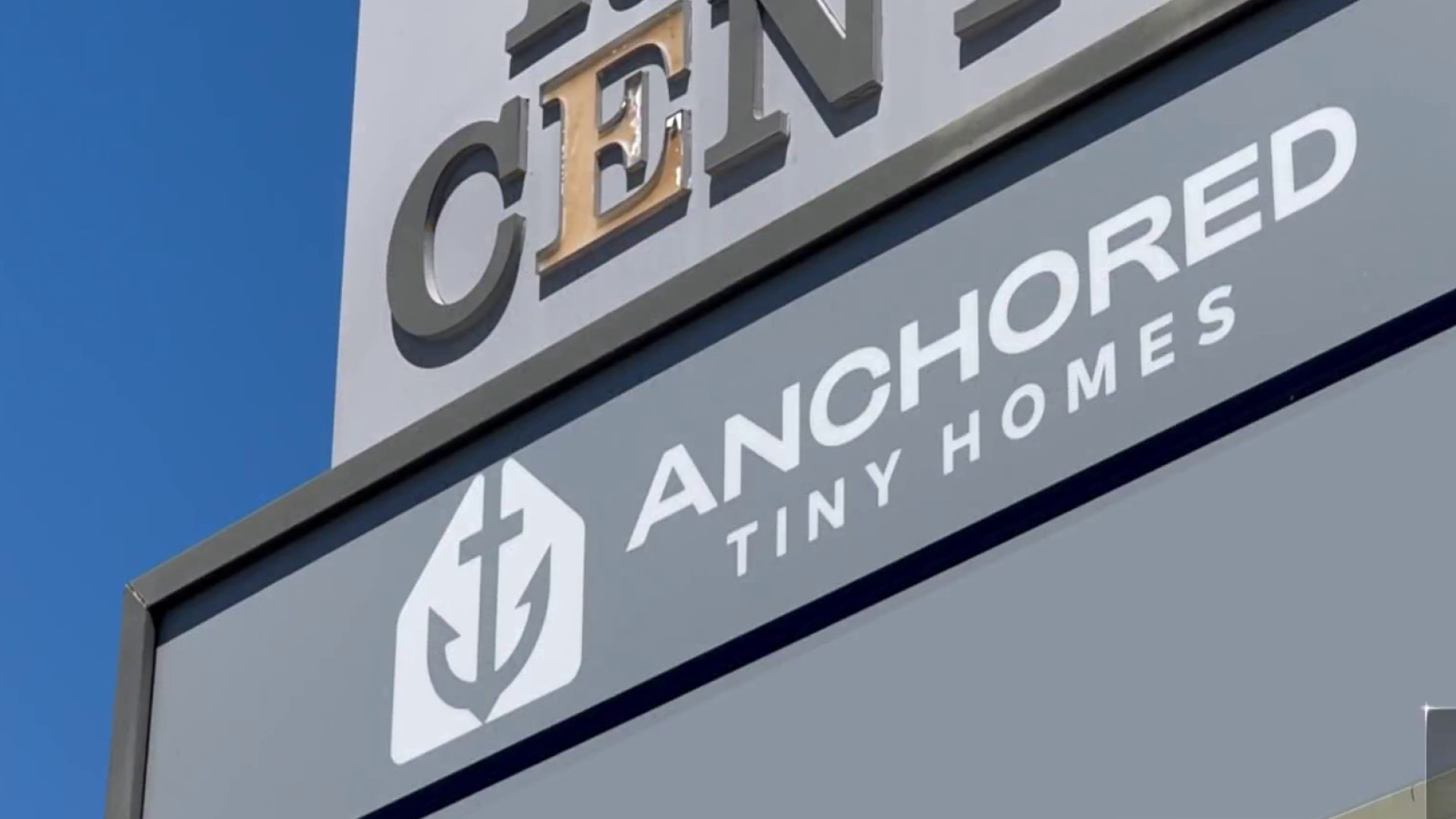The many Bay Area homeowners who say an ADU builder scammed them out of tens of thousands of dollars each are now learning the hard way that a state safety net will basically be useless to them.
At issue is the contractor’s bond. The state requires all contractors to have a bond to pay back customers if a contractor fails. But, it turns out California’s bond offers far less protection than you might expect.
'Anchored' sinks
All around the Bay Area, homeowners tell us they hired Anchored Tiny Homes to build a backyard accessory dwelling unit, or ADU. Many families prepaid for some or all of the work. But now, these families have unfinished projects.
“I feel scammed,” said San Leandro homeowner Katie Lucas, while standing in her shell of an ADU.
“They got me,” said Rohnert Park ADU buyer Steve Sonza.
Anchored Tiny Homes CEO told us his company was “just a failed, mismanaged growing business.”
The people who’ve contacted NBC Bay Area Responds say they’re out more than $1.2 million, collectively. Others, in a Facebook group, say they’ve lost at least another $4 million.
“On one level, we feel relieved that we weren’t the only ones scammed,” said Oakland ADU buyer Alan Miller.
But on another level, the scale of this company’s collapse is dealing a second blow to these families. Anchored Tiny Homes says it’s exploring bankruptcy and the state has filed to revoke its license, so customers are now filing a claim on the contractor’s bond.
Get a weekly recap of the latest San Francisco Bay Area housing news. >Sign up for NBC Bay Area’s Housing Deconstructed newsletter.
One size fits all
In applying, homeowners are discovering a mind-blowing mismatch. Even though the company’s CEO boasted about selling hundreds of ADUs and how his “$100 million dollar business” was raking in money, Anchored Tiny Homes’ bond was a mere $25,000. And that, believe it or not, met the letter of California law. It doesn’t matter whether you’re a solo builder doing one small project at a time or you’re Anchored Tiny Homes, reportedly building hundreds of ADUs, the state of California only requires $25,000. One size fits all.
“I don’t understand how the bonding requirement can be that minimal,” said Miller.
Sadly, it gets worse. Customers said if their claim is approved, the insurance company will divide that $25,000.
“It’s split up against the 400 -- or however many -- people have applied for that bond,” Sonza said. “So, it’s not per person. It’s split."
A pittance and a call for change
If the $25,000 is divided equally by 400, that works out to a mere $62.50 payout per customer.
“That’s insane,” Sonza said. “Why are we allowing that?”
Anchored Tiny Homes’ customers say state law failed them. And now, the contractor bond requirement must change.
“[The bond] should be much higher," Sonza said. "If we’re dealing with hundreds of thousands of dollars, $25,000 is not going to cover it."
Same sentiment for Alan in Oakland.
“When you’re doing this kind of work with this many customers, you ought to have to post a bond that is proportionate to the potential liability you’re creating,” he said.
Some states appear to operate differently. In Nevada, for example, its contractor board website says contractors must carry a bond up to half a million dollars, based, in part, on “future financial responsibility.”
In 2021, the state of California legislature researched increasing contractor bonds. Back then, the requirement was $15,000. The 2021 report included a quote that said, “the current $15,000 contractors bond is wholly insufficient.” Ultimately, the state only increased the bond from $15,000 to $25,000.
“I would want to see millions of dollars in bond money,” said Chris Pace, former Anchored Tiny Homes chief operating officer. He now works for a different ADU builder. Pace says, the bigger the builder is, the bigger its bond should be.
“If I buy a new car, my insurance goes up. If you add 500 more projects, shouldn’t your bond go up?” he asked.
We told Anchored Tiny Homes’ CEO Colton Paulhus we were doing this story. We asked for his input. He did not respond.
State action ahead?
We also shared our recent stories with the Contractors State License Board and local legislators who oversee the contractor law. The board told us, “CSLB is willing to consider changes to required bonds as needed to protect consumers.“
State Assemblymember Marc Berman wrote us and said, “The stories of customers being scammed by Anchored Tiny Homes are deeply disconcerting.” Berman went on to say, “I plan to explore possible legislative solutions in the coming months to try to ensure this doesn't happen again.”
We reached out to the lobbying group that represents California homebuilders. It did not respond.
The contractor board says a meeting to discuss contractor bond requirements is scheduled for October. We plan to attend it.



